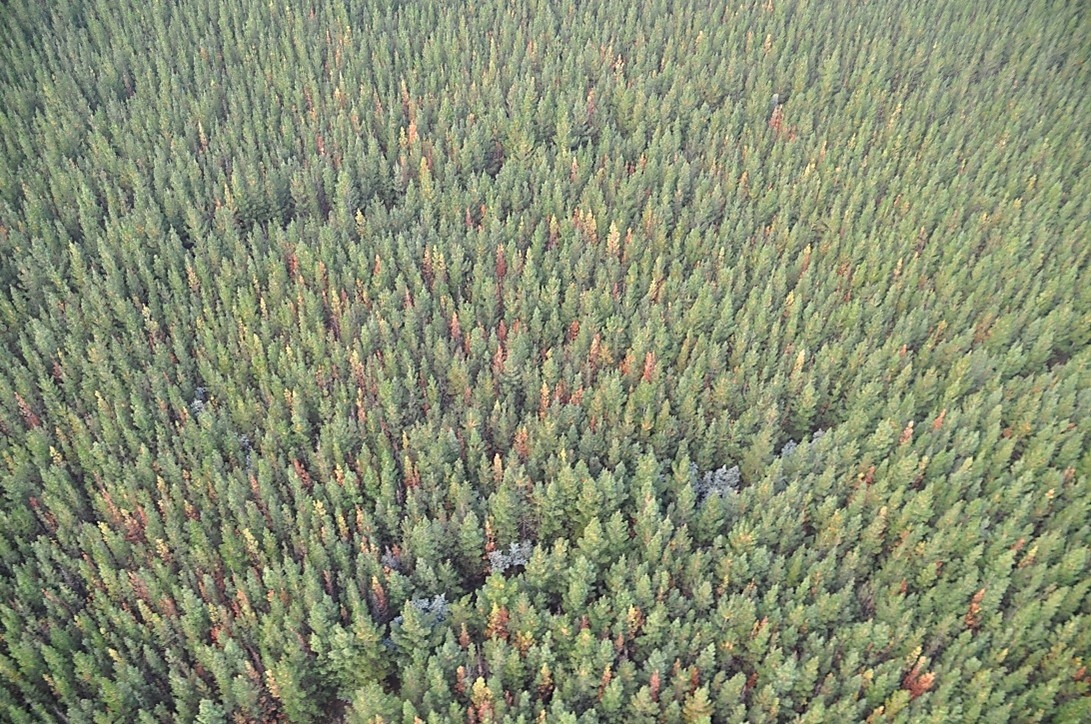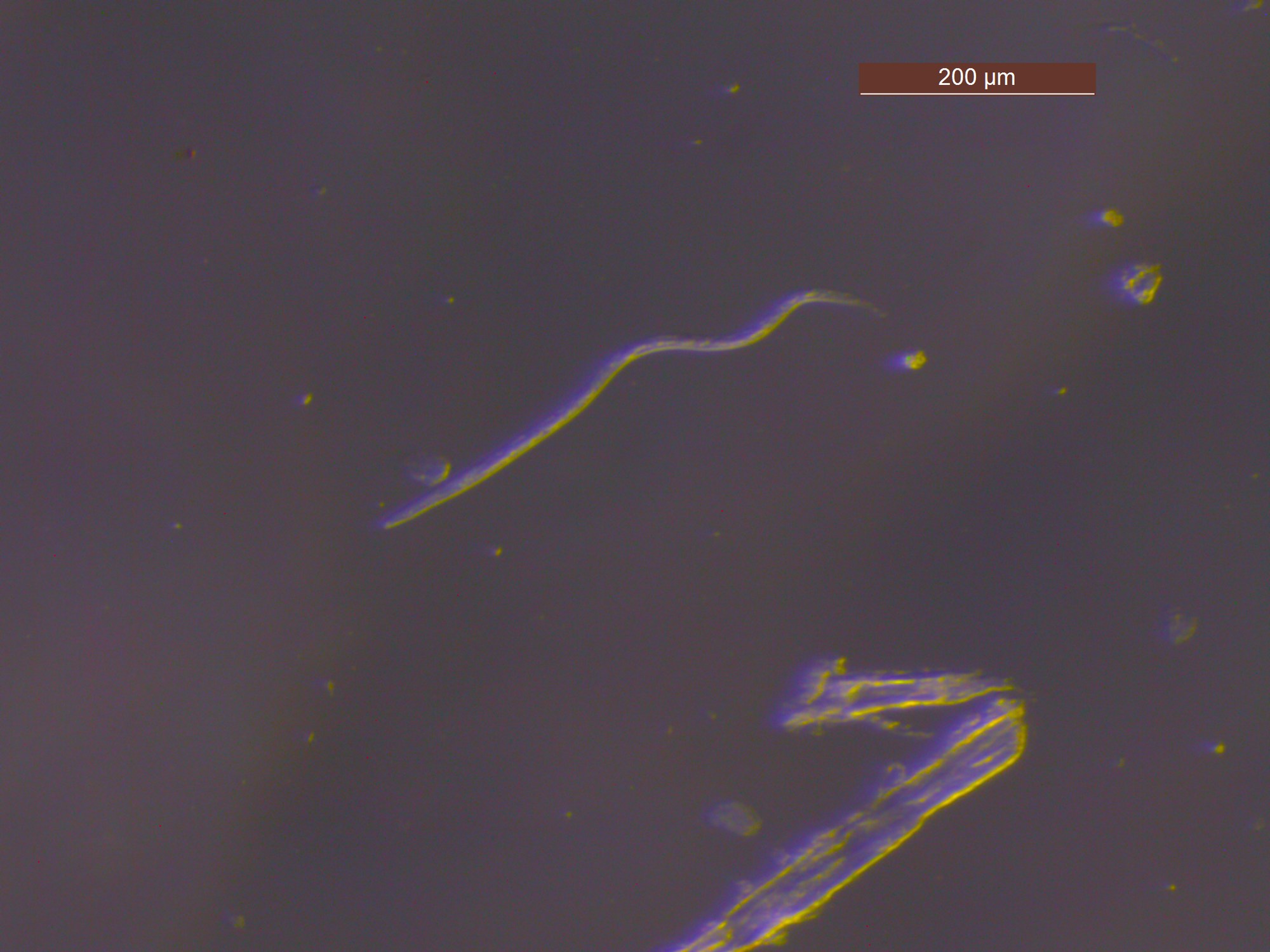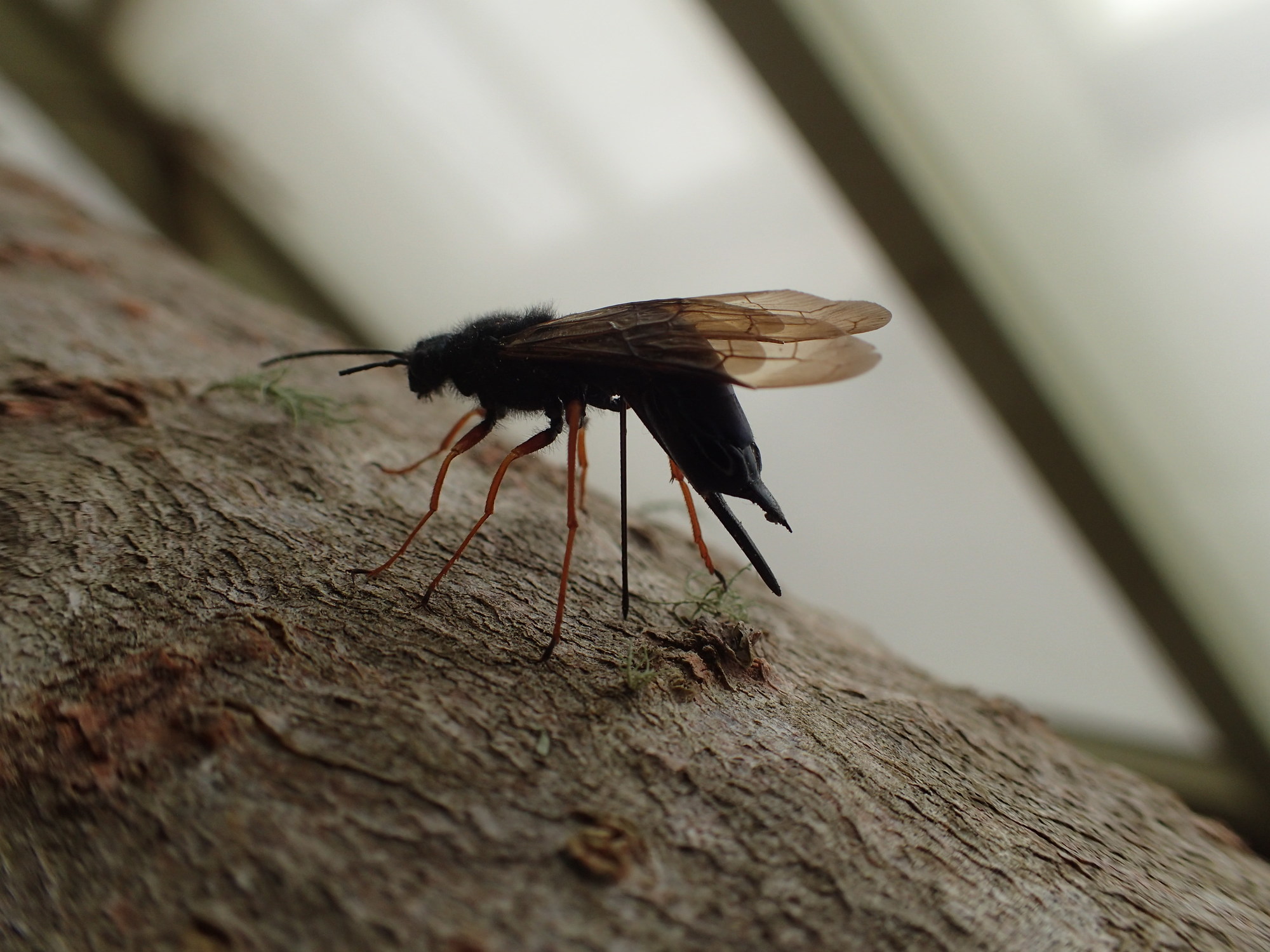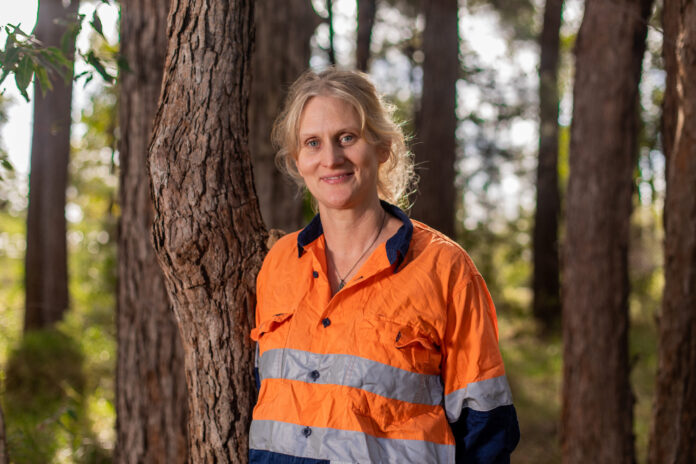A strain of roundworm discovered for the first time in Australian pine plantations during University of the Sunshine Coast-led research could become the timber industry’s latest biocontrol weapon.
UniSC Forest Research Institute’s Dr Helen Nahrung, who studied the worm in a collaboration across Australia, South Africa and New Zealand, said its natural dominance among other strains used to attack a notorious wood wasp pest was surprising and exciting.
“The unexpected identification of this nematode (worm) is hugely significant for science and industry,” said Dr Nahrung, who shares the discovery with the NSW Department of Primary Industries, the University of Pretoria and Scion (New Zealand Forest Research Institute).
Dr Nahrung and Dr Angus Carnegie of the NSW DPI will travel to Brazil in September to outline the finding to a meeting of southern hemisphere commercial plantation managers in the hope of saving more radiata pine trees from a fatal fungus caused by the wasp pest.

“Radiata pine is Australia’s most prevalent plantation softwood, used widely in housing and furniture construction, but the $1 billion industry is vulnerable to the sirex wasp, an invasive pest that kills trees by spreading a wood-rotting fungus,” Dr Nahrung said.
“This worm strain (Deladenus siricidicola – Lineage D) is already acting to protect the trees. It burrows into wasp larvae and sterilises the female eggs, helping to kill the wasp life cycle while also eating the wasp fungus.
“We don’t know how or when it got to Australia but its genetic strength certainly indicates that it could be a new addition to the worm strains already used for biological control of sirex fungus.”
The latest paper, published in the journal Biological Control, reported that the new nematode was found in forests in New South Wales, South Australia, Tasmania, Victoria and NZ’s North Island.

It was the first study to explore the population genetic structure of a large collection of D. siricidicola in Australia since the worm became widely used in biological control in the early 1970s.
The research received funding and was done in collaboration with the Queensland Government, Australian National Sirex Coordination Committee, Forest and Wood Products Australia and the Tree Protection Cooperative Program at University of Pretoria’s Forestry and Agricultural Biotechnology Institute.
It was reported to Forest and Wood Products Australia with recommendations to review biological control programs with a view to trialling the new nematode.
“This should not be seen as a silver bullet, rather a sensible use of the genetic diversity present in the environment,” the report stated.

Scroll down to SUBSCRIBE for our FREE news feed, direct to your inbox daily.





